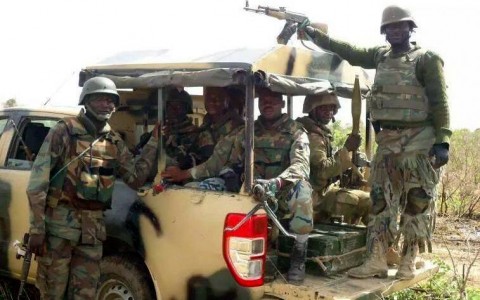Abuja’s increasing challenge of Insecurity By Uche Igwe
Articles/Opinion, Latest Headlines Sunday, December 6th, 2015
With increasing incidences of suicide bombings and large scale destruction, insecurity is sadly becoming a global phenomenon. Most public facilities are now at one level of risk or another – from airports to stadia, from markets to shopping malls, from churches to mosques, from hotels to theatres have become soft targets . Since the unfortunate incidents which took place in Nairobi, Kenya and later in Paris, France where many bombers successfully attacked public building and caused largescale destruction, the world has remained both cautious and alert. Terrorism is now spreading its caustic tentacles around the world. In Paris for instance the bombings which recently took place led to an estimated death toll of about 130 persons and while many others were injured. In Nairobi Kenya, the bombing at Garrissa University led to the death of about 148 persons while 79 others sustained different levels of injuries almost double of 79 deaths which occurred when the popular Westgate shopping mall was attacked in 2013 while 175 others sustained injuries.
Abuja, the capital city of Nigeria has had her own share with bombing in public places. It started with the bombing near the eagle’s square in 2010 during Nigeria’s 50th anniversary event. Other ones include the one that hit popular mammy market in Abacha military barracks on the 1st of January 2011, then followed by the bombing on June 16th same year of the police headquarters then the Christmas eve bombing of St. Theresa’s Catholic Church in Zuba. The one that probably attracted the highest global attention was the bombing of the United Nations office on the 26th of August 2011 where 21 persons died and about 73 were injured. There have been other bomb blasts in many spots in the Wuse 2 area, in a popular bus station in Nyanya and near a police station in Kuje all in the outskirts of the town.
Beyond bombings, Abuja has recently started witnessing an increasing rates of burglary, armed robbery, car snatching and rampant ‘one chance’ attacks. Many citizens have resorted to self-help. Private security companies are sprouting every day to watch over residences especially in areas that are under policed. Many of the private operatives except a few are usually poorly trained and cannot do much. In some of the incidents of burglary, some of the security guards have caught as accomplices and informants. In a residence in the Jahi area near NEXT supermarket, one serviced apartment was burgled under the watch of a private security company. Investigations revealed that both the managers of the property and the female owner of the security outfit rather than take responsibility connived with investigators to destroy evidence that suggested culpability and unprofessionalism on their part. Similar stories have been reported in many areas around the town recently.
Even with bombings and rumours of bombings in the air, Abuja has managed to keep its motion. It has not lost much in the pace of its night life. Residents still cruise around in the night seemingly unperturbed. Many open gardens still get high patronage. Night clubs in the Wuse 2 area for instance still records high turnout even as the area had been hit by blasts in the past. It is either that residents do not care or they forget easily or they may have even resorted to fate. I visited some of the spots that were hit by blasts in the past last week. One could hardly recognise the spots as normal activities have taken over the whole area. You will need to work hard to see any footprints of the blasts. Yet Abuja remains a very insecure city in my view. Although there are military checkpoints at the entry points into the city, the checks are usually manual and not thorough. There are still very few functional closed circuit surveillance cameras in the city. Though the average resident remains very suspicious, government has not done much to enlighten them about things to watch out for in a potential suicide bomber and what to do or who to speak to when you suspect anyone.
While there has been considerable improvement on the fight against boko haram insurgents, it is highly improbable that the December victory dateline set by President Buhari will be met. It is either that federal government did not study the problems thoroughly or again they underestimated the capacity of the insurgents. So far, the Nigerian military have recently recorded consistent advances against the terrorists but not without losses of their own personal and equipment. It is encouraging to note that the military itself have begun to purge themselves of unscrupulous elements who are allegedly benefiting financially from the lingering war and therefore not interested to bring it to an end quickly. Part of the reasons for the slow progress in the fight against Boko Haram is that some top soldiers have reportedly sabotaged the efforts of Nigerian troops in the past by passing sensitive tactical information to the insurgents. Yet there is still a lot to be done. The insurgents are getting bolder by the day. The success rate of suicide bombings are increasingly making it necessary for further improvement in our intelligence infrastructure, stronger coordination of the efforts of security agencies and preventive strategies to nip suicide attacks in the bud before they happen.
Especially as the festive season draws closer, there is an urgent need to scale up security and vigilance around our major airports nationwide as well as churches and mosques, markets, shopping malls and theatres. In Abuja, particular attention should be paid to Nnamdi Azikiwe International Airport, all major hotels in the city as well as Muslim worship centres like Central Mosque and Yoruba Mosque. Others spots like are major churches such Family Worship Centre, Winners Chapel, Holy Trinity Catholic Church Maitama, Dunamis International Church, Redeemed Christian Church of God, Christ Embassy, Good Tidings International Church, Church of Assumption Asokoro, Deeper Life Bible Church among others need to be watched over diligently. Wuse and Garki markets are other important spots while not forgetting shopping malls like NEXT Cash ‘n’ Carry, Shoprite in Apo and Jabi and as well as Silver Bird Galleria just to mention but a few.
The increasing rate of insecurity In Abuja is beyond worrisome. That government response to the recurring bombings in the city is weak leaves a sour taste in the mouth. Our government institutions as well as citizens in the Federal Capital territory deserve and demand additional protection from our political leaders. Some of cannot just afford bullet proof jeeps and that is the truth. In the absence of adequate policing, concerned agencies should regulate those who are issued licenses to operate private security outfits. This city is beyond a capital. It is an important gateway into our country. If residents of Abuja cannot feel protected, then what will citizens living in other parts of the country do? What impression do we want to create to the outside world? We cannot afford to live in fear in this city. This is Abuja and not Baghdad!
Related Posts
Short URL: https://www.africanexaminer.com/?p=28302






















